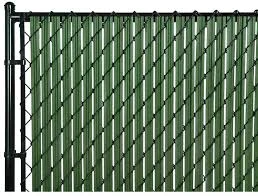The Versatility of Garden Wire A Gardener's Best Friend
Garden wire, often overlooked in the realm of gardening tools, is an incredibly versatile item that can prove invaluable for both amateur and seasoned gardeners. With its various types and applications, garden wire offers solutions for a multitude of gardening challenges, from structural support to decorative purposes. In this article, we will explore the different uses of garden wire, its types, and tips for effective utilization in your gardening endeavors.
Types of Garden Wire
1. Galvanized Wire This popular choice is coated with zinc to resist corrosion, making it ideal for outdoor use. Galvanized wire is strong enough to support climbing plants and is often used for trellising. Its durability ensures that it lasts through the seasons, even in harsh weather conditions.
2. Anodized Aluminum Wire Lightweight and flexible, anodized aluminum wire is perfect for more intricate tasks in the garden. It comes in various colors and is often used in artful applications, such as creating decorative borders or sculptures. Its pliability allows gardeners to easily shape and mold it to fit their design needs.
3. Twist Tie Wire This type of wire is ideal for tying plants to stakes or supports. Often found in gardening kits, twist tie wire is easy to work with and can be cut to any desired length. It's particularly useful for younger plants that require some assistance to grow upright.
4. Bailing Wire Made from heavy-gauge steel, bailing wire is used for more robust applications. It is great for securely tying together branches, making it perfect for creating strong supports for larger plants or vines.
Uses of Garden Wire
1. Support for Climbing Plants
One of the primary uses of garden wire is providing support for climbing plants. Vines such as peas, tomatoes, and pole beans need something to cling onto as they grow. Garden wire can be strung between stakes or a trellis to offer a steady framework that encourages vertical growth. This not only maximizes space but also improves air circulation, reducing the risk of fungal infections.
2. Creating Garden Structures
Garden wire serves as the backbone for various garden structures. Whether it's a trellis, a grid for training flowers, or a support frame for leafy greens, garden wire is indispensable. Often, gardeners will fashion simple structures using poles and wire to train their plants effectively, ensuring they receive adequate sunlight and moisture.
garden wire

3. Repairing Garden Fencing
Garden wire can also be put to good use in maintaining garden fences. Whether critters are attempting to burrow beneath or plants are damaging the structure, a bit of garden wire can mend these issues quickly. Additionally, it can help tie back loose sections of a fence, ensuring it remains sturdy and protective.
4. Crafting Decorative Designs
For those with a creative flair, garden wire can be employed to make decorative elements. Twisting and bending wire can yield beautiful garden art, plant hangers, or even unique plant supports. The ability to shape the wire allows gardeners to express their artistic side while enhancing the aesthetics of their garden space.
5. Securing Plants
Garden wire is also an essential tool for securing plants to stakes or cages. During growth periods, winds or heavy rains can topple young plants. Using garden wire to gently tie these plants not only supports them but also encourages healthy growth by preventing damage.
Tips for Effective Use of Garden Wire
1. Choose the Right Gauge The thickness of the wire should correspond to the needs of your plants. Thicker wire is essential for heavy plants, while thinner, flexible wire is perfect for delicate stems.
2. Be Gentle When securing plants, ensure you don’t pull too tightly to avoid damaging the stems. Loose ties allow for growth while still providing necessary support.
3. Corrosion Protection Remember to select wire that is resistant to rust when using it outdoors. Galvanized or anodized options are preferable for longevity.
Conclusion
In summary, garden wire is a gardener's best friend, offering unparalleled versatility and functionality. From supporting delicate shoots to creating elaborate garden designs, its applications are numerous. Whether you are new to gardening or have years of experience, incorporating garden wire into your gardening toolkit will undoubtedly enhance your gardening experience. So next time you set out to tend to your garden, consider the many ways this humble tool can work for you.
















